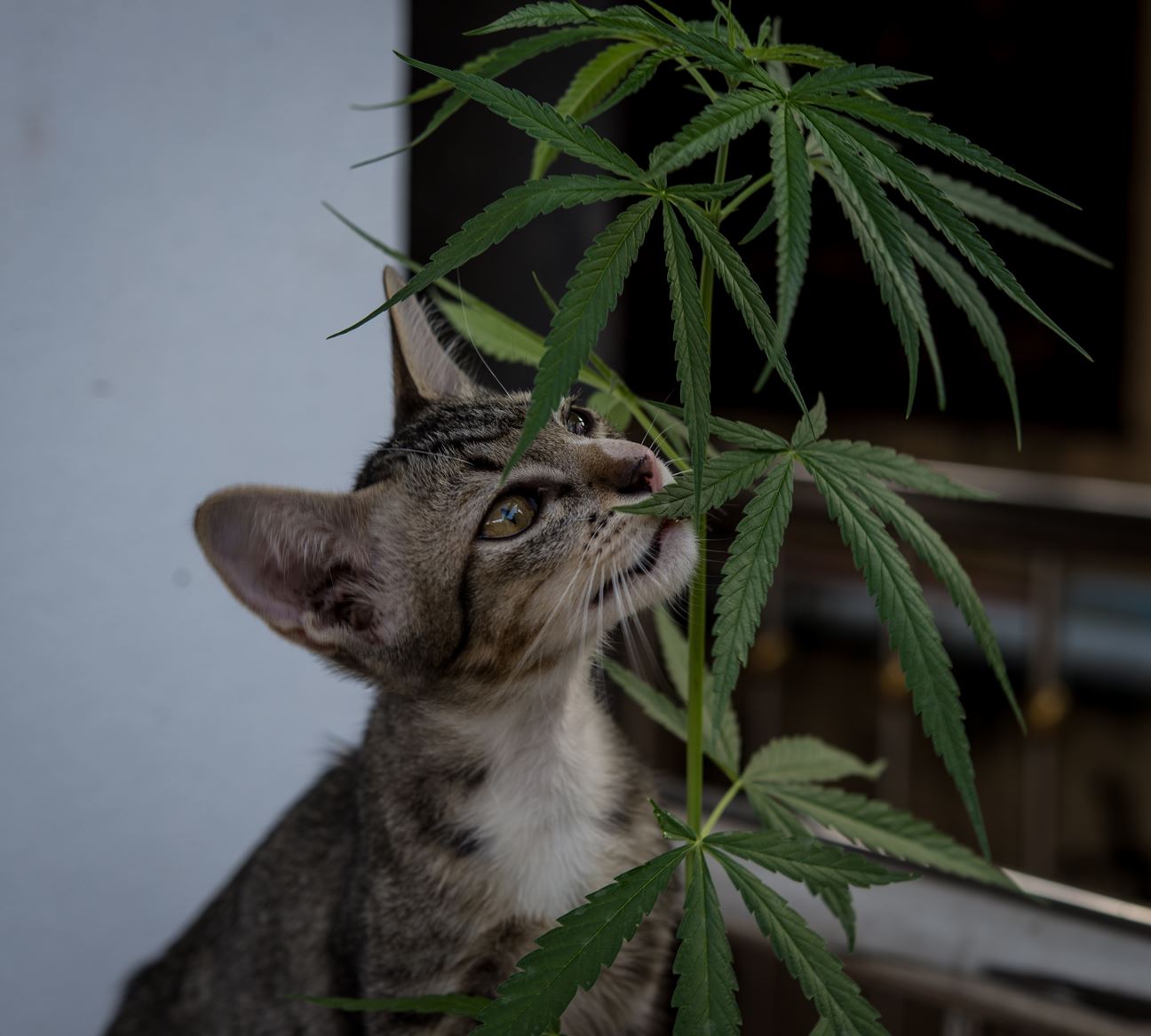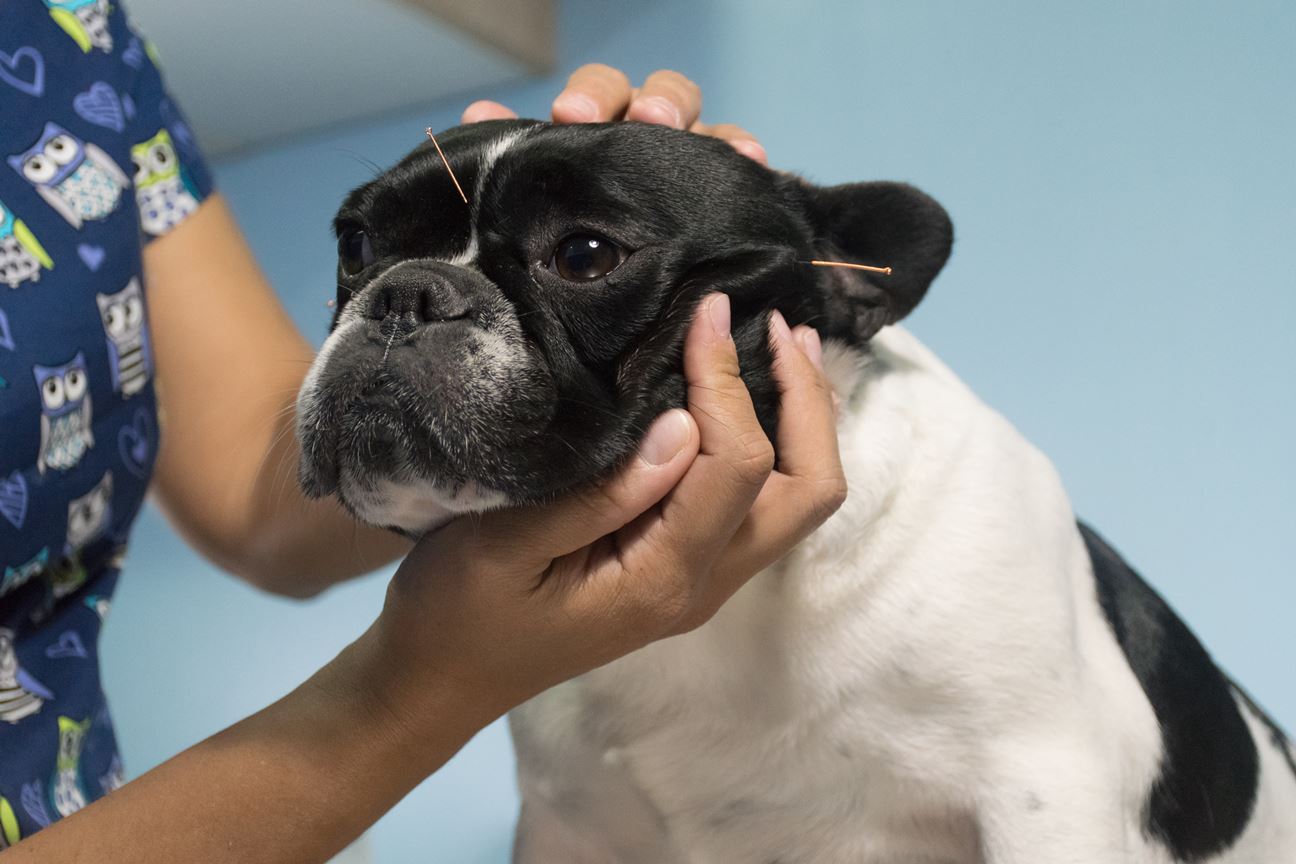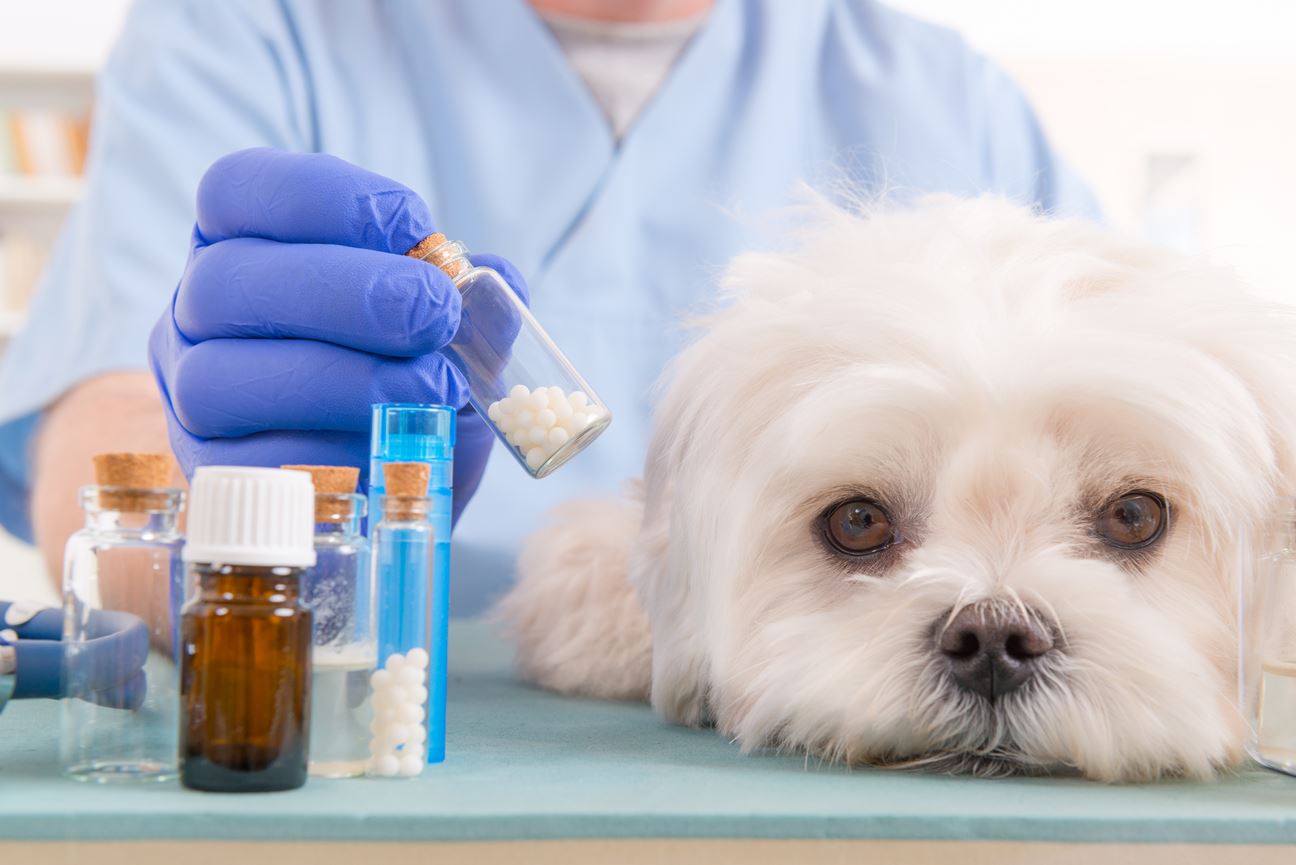These alternative treatments, along with the conventional medicines, can help make your pets life better. Some of them are even preventive!
In recent times, complementary and alternative veterinary medicine has seen a rise. These, when integrated with conventional medicines, have shown promises for ailing companion animals. A wide range of natural treatments, or modalities, that extend beyond conventional Western medical treatments help lessen the animals' discomfort, following a disease or surgery. And some of them can even be used as preventive treatments.
Below are some alternative medical treatments for your pets; a few of which can even be recommended by the veterinarian.
Medical Cannabis

There have been solid reports that a daily dose of medical marijuana has helped dogs beat cancer! Cannabis tincture and cannabis oil have shown signs of improvement with life-threatening conditions in animals. These hopeful stories have helped improve or even extend the lives of many senior animals! Cannabis sativa is one of the world’s oldest and most trusted plants. And it has shown amazing results too. Now, for the technical part, the first research published on the effects of cannabis on animals was published by Walter E. Dixon in the British Medical Journal in 1899. The research says that all vertebrates, and that includes your pets too, have an endocannabinoid system that helps maintain an internal balance. Marijuana contains abundant cannabidiol (CBD) and tetrahydrocannabinol (THC) that help activate the cannabinoids and fire receptors through the central nervous system, thus showing well-documented biological effects. CBD is also known to have antitumor, antianxiety, antinausea, anti-inflammatory, and anticonvulsant properties which makes it a great drug for your little loved one.
In case you want to administer medical cannabis to your pet, make sure that it is always and only purchased from a licensed medical marijuana dispensary. It is usually seen that veterinarians will play little to no role in prescribing them since marijuana is a designated schedule 1 controlled substance in most countries.
Acupuncture

This complementary therapy is practised in many Eastern cultures and has been around for thousands of years. Acupuncture involves placing gauge needles into specific muscles at special locations. Through the release of chemicals in the muscles, brain, and spinal cord, the body can restore balance. This helps ease pain, better blood circulation, relaxes the muscles and helps your pets’ body to heal itself. The traditional Chinese approach to this treatment involves balancing Yin and Yang and improving the flow of the life force in the blood- Qi (pronounced as ‘chi’). Western medicine has widely accepted the benefits of acupuncture.
Most times, veterinarians use acupuncture along with conventional medication. In cats and dogs, acupuncture can treat chronic pain arising because of arthritis, degenerative joint disease, and muscle strain. It is also used in post-operative care following orthopaedic surgeries. Acupuncture also benefits pets dealing with medical conditions such as urinary disorders, gastrointestinal disease, and epilepsy. In case you think this therapy can help your pet, do consult your vet. After a detailed medical examination of your pet, a specific plan would be chalked out for your pet. When practised safely, this therapy is well accepted by most pets.
Homoeopathy

Just like with humans, your pets can also benefit from the use of homoeopathic medicine. The best part about it is that these medicines do not pose a risk of toxic side-effects or lead to medicine resistance. Homoeopathy is a great natural treatment for your pets, as it is easy to administer and effective, yet safe and gentle. After careful consideration of signs and symptoms in your pet, the homoeopath vet will prescribe them the medication. The dosage is relatively similar across the spectrum - regardless of age, gender, weight, and breed of cat/dog.
Homoeopathy can treat a wide range of diseases:
- Gastric issues like gastrointestinal inflammation, vomiting, acidity, and diarrhoea
- Stress-related issues like separation anxiety, grief, low mood, sadness, and fear
- Post-surgery pain remedies, healing remedies, and wound healing
- Infections like an external ear infection and aural hematoma
- Skin conditions like atopic dermatitis, insect bites, bee stings, and ringworm
Phytotherapy
In veterinary medicine, phytotherapy is one of the most upcoming forms of non-conventional medicines. The treatment is usually preventive and is used to support conventional medical treatments. Phytotherapy makes use of active principles extracted from plant parts like seeds, roots, leaves and flowers which are then used to treat minor diseases in animals. The therapeutic efficacy of these extracts is often compared to synthetic medicines. And are often used as immunostimulants, antibacterial, antimycotic (fungal infections), antiparasitic, and disinfectants.
In pets, phytotherapy can help cure many diseases. In the case of gingivitis, a tincture combination of Calendula officinalis (marigold), Centella Asiatica (Brahmi) and Commiphora myrrha (myrrh) can be useful, whereas, in the case of conjunctivitis, pet are given tea made of Euphrasia rostkoviana (eyebright). Camomile infusion, carrot juice and rice decoction can help reduce diarrhoea in pets, while thyme and essential oils can help treat cough. To reduce stress and anxiety in pets, a mix of lemon balm and hawthorn works best.
Hydrotherapy

Hydrotherapy makes use of water to offer resistance training to your pets to help work on the problematic joints, usually in seniors. As animals become buoyant in water, this treatment is ideal for the ones with weaker legs and joints. Hydrotherapy involves a lot of variations - including a whirlpool of soothing jets, an underwater treadmill that makes the dogs work strenuously for overall fitness, and swimming in pools.
Physiotherapy
Veterinary physiotherapy is picking up pace in recent times. These sessions usually last thirty minutes to one hour where the physiotherapist will assess and treat the injuries to animals’ muscle, tendons, cartilages, joint capsules, and ligaments. Typically, a physiotherapist will chalk out an exercise program that can be followed at home too. This fun exercise session can provide improved mobility and well-being for your pet. Physiotherapy can have excellent results following orthopaedic surgery or during a rehabilitation process. Orthopaedic conditions such as degenerative joint disease, arthritis, dysplasia, trauma, and soft tissue injuries can be treated using physiotherapy. Additionally, this treatment can also be used for neurological conditions like chronic degenerative radiculomyelopathy (CDRM), nerve injuries, fibrocartilaginous embolism (FCE), and intervertebral disc disease.
A physiotherapist will use different treatments like manual therapy, which makes use of joint and soft tissue mobilization along with electrotherapies such as ultrasounds, laser, and pulsed electromagnetic energy and hydrotherapy.
Essential Oils
Essential oils are made from concentrated plant compounds. They are easily available and come in a wide variety of fragrances. They are natural and one of the best ways to support our pets’ health needs. These oils are used to treat certain illnesses and also chronic pains. There are two primary methods through which these oils can be used. Inhalation of essential oils helps them work on the respiratory system, including the nasal passages, trachea, lungs, and sinuses. Another method involves the topical application of oils on the site. This is useful if the issues are related to organs, muscles, or joints.
Let us take a look at a few essential oils that make a safe cut for your pets and let us see what are their benefits
- Lavender - If your pup suffers from anxiety, stress, or car sickness, try the lavender oil for relaxation and general collectedness. It is safe to topically apply, but make sure it is used in a diluted form. You can slightly apply it to your dogs' ears - followed by a gentle massage. Or even place a few drops on its bedding.
- Chamomile - From treating digestive issues to healing wounds, chamomile essential oils can be used for a variety of reasons. Moreover, camomile can also have a calming effect on your pets. And if your dog is having a difficult time socializing, this oil will help them calm their anxiety and socialize better. There are two types of chamomile oils - the German chamomile can be rubbed on your dogs' coat for its anti-inflammatory properties, and the Roman chamomile to reduce pain and cramps.
- Frankincense - This is one of the most popular essential oils for dogs. Frankincense extract comes from the resin of Boswellia trees and has a woody, earthy smell. This oil’s benefits for the pets are incredible - from reducing inflammation and pain, strengthening the immune system, easing digestive troubles to even reducing some tumours and killing cancer. When applied topically, this oil can also help reduce skin imperfections.
- Myrrh - Myrrh oil is usually applied topically. Its antiseptic and antibacterial properties help reduce skin irritation in animals. Regular use can also heal patches of irritated skin.
- Peppermint - This oil can only be used in diffusers and that too in small amounts. Never apply peppermint oil to the dog or let the dog ingest it. Apart from helping with respiratory issues, peppermint oil can also reduce aches and pains.
- Ginger Root - Ginger is a go-to when it comes to soothing aching tummies! The ginger root essential oil can help your dogs take care of minor digestive problems and even clear their respiratory tracts in case of congestion.